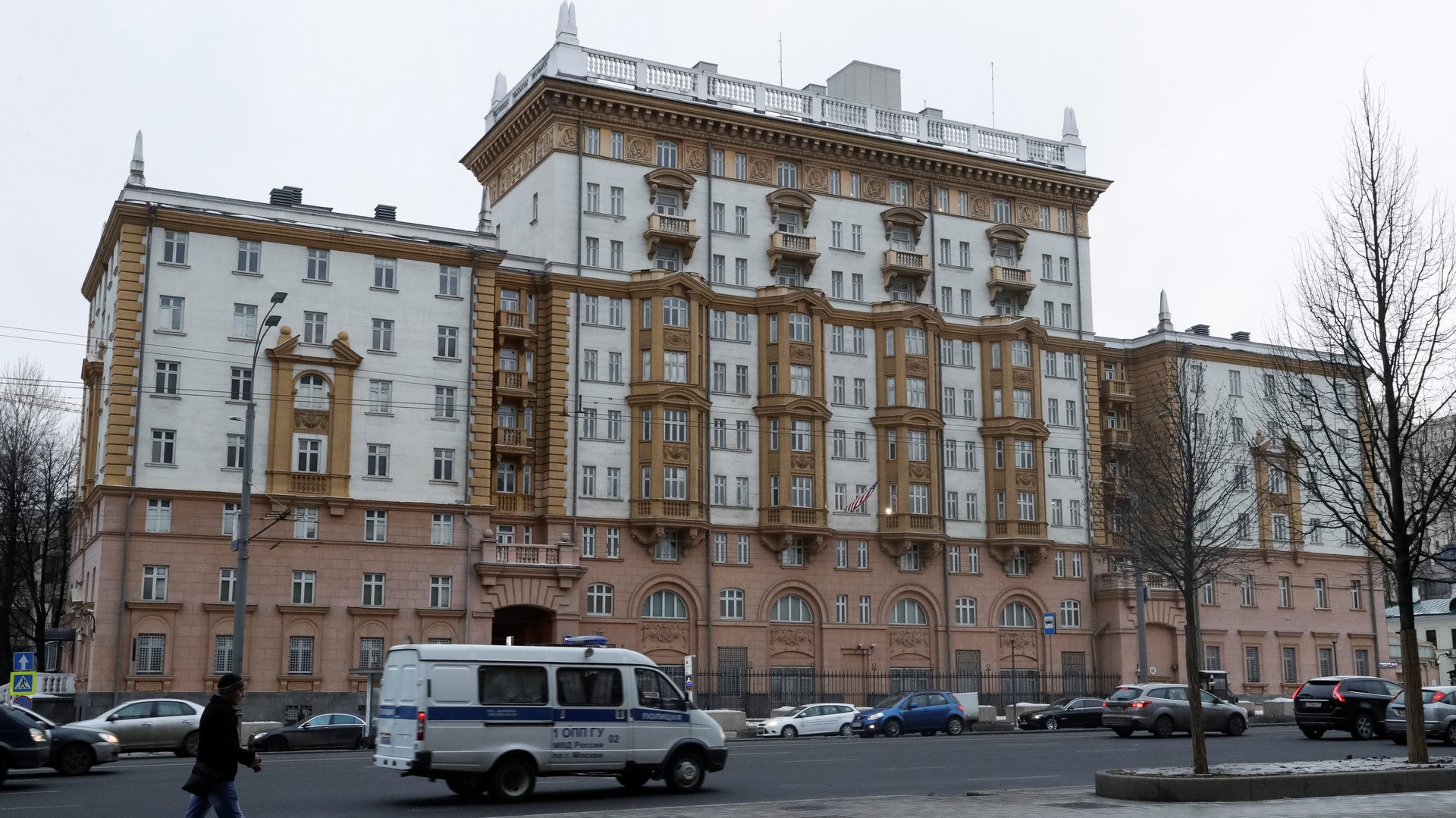The US is “greatly reducing” visas for Russians—and it’s going to hurt both countries
The diplomatic stand-off between the Trump administration and the Kremlin has a new casualty: most of the Russians who want to visit the US.


The diplomatic stand-off between the Trump administration and the Kremlin has a new casualty: most of the Russians who want to visit the US.
After Moscow ordered it to pull out 755 of its 1,200 diplomatic staff in Russia, the US State Department said yesterday that it will adjust by giving out a ”greatly reduced” number of non-immigrant visas. Students, tourists, and businesspeople will find it much harder to get to America, and none of the US consulates outside Moscow will hold visa interviews. That could mean a nine-hour flight for people living in the Russian far east.
Russia had ordered the staff cuts in response to new sanctions the US passed last month, which Russia called a “trade war.” The new American visa policy prompted Russian foreign minister Sergey Lavrov to accuse Washington of trying to “stir up discontent among Russian citizens about the actions of the Russian authorities.”
But Moscow had given the US little choice. The numbers of diplomats it wanted cut was basically the number of Russian employees in US embassies, who are crucial in visa processing, says William Courtney, a former US ambassador to Kazakhstan and Georgia, who has also served in the Moscow embassy. “[The Kremlin] probably should have thought about that when they were picking the numbers of employees to cut; they should have picked a number that was a lot more moderate,” says Courtney, now an adjunct senior fellow at the RAND Corporation.
Just like the sanctions Russia placed on European food imports in 2014, the diplomat ban will likely backfire on Russia, Courtney says. He argues it will hurt businesspeople who have to travel to the US, discourage American investment in Russia, and cut down on crucial technology and machinery imports. ”When given the choice between geopolitical preferences or economic preferences, the Kremlin keeps picking geopolitics. It’s a consistent pattern and it always hurts the Russian economy,” he said.
But making it harder for Russians to go to the US will also weaken America’s “soft power,” says Mark Galeotti, a senior researcher at the International Relations Institute Prague. ”The more Russians who get to visit the outside world, the harder it makes it to maintain a propaganda initiative domestically,” he said. “It’s harder to tell people that everyone in Europe is forced to be gay or house Syrian migrants if they have actually been there.”
Although the US didn’t have much of a choice in cutting visa services, Galeotti says making a brazen announcement about it (instead of just quietly implementing it) is a “bit of a gift” for Kremlin propagandists, who can spin it as a “spiteful blow against ordinary people.”
What’s more, he says, including student visas in the cutbacks means losing an opportunity to win over tomorrow’s Russian leaders. “This is one of the really important areas in terms of capturing young minds: the next generation of the elite…also if you look at it in a very ruthless form, these are people the CIA might be trying to recruit or at least get to know,” says Galeotti, an expert on the Russian intelligence services.
The lack of student exchange cuts both ways, though, Courtney points out. “Lots of Russian students come here for university, a lot of software engineers,” he says. “A lot of high-tech, leading edge parts of the Russian economy are going to be hurt badly.”
So, which country ends up worse off? Unclear. But US-Russia relations, and ordinary Russians, are definitely the losers.